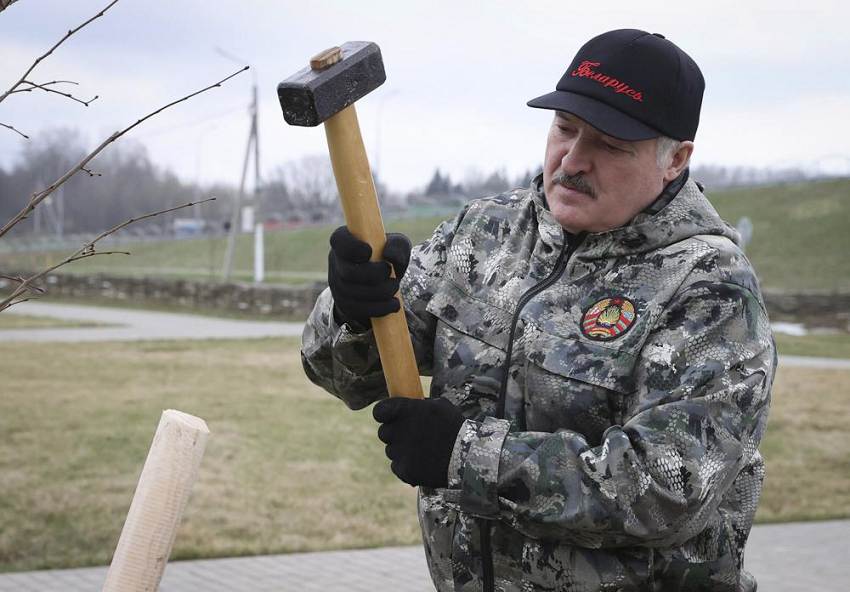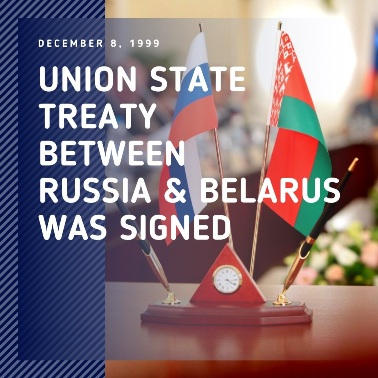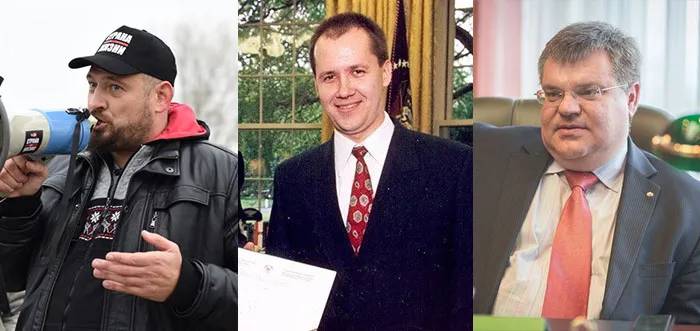

When he ran for his sixth term as President in 2020, the election was supposed to be just another formality but for the first time in his political career, Lukashenko faced strong opposition which he proceeded to demolish.
Belarus is a former Soviet Republic which has been "presided" over for almost three decades by Alexander Lukashenko, a mustachioed former collective farm boss, who rules the land with an iron fist.
"Under his rule, the tentative opening of the former Soviet republic came to an end and Belarus began to turn into an autocracy.""Batka" was originally elected as President of Belarus in back 1994, three years after the country declared independence during the dissolution of the Soviet Union. Under his rule, the tentative opening of the former Soviet republic came to an end and Belarus began to turn into an autocracy.
Unlike the leaders of other former Soviet states, Lukashenko preserved the relics of communism and resisted the advance of "democracy" and "market economics". He also maintained close ties with Russia which supplies Belarus with cheap gas and subsidised crude oil that it refines and sells at a profit. In 1999 the two countries formed a “Union State” to increase their economic integration.

Since 1999 Belarus has been part of a supranational political union with Russia - the so-called "Union State".
"Unlike the leaders of other former Soviet states, Lukashenko preserved the relics of communism and resisted the advance of "democracy" and "market economics"."Under Lukashenko, elections were reduced to an administrative formality and he appeared to have little difficulty in securing re-election in 2001, 2006 and 2010 - although his "victories" tended to be overshadowed by allegations of vote-rigging and opposition protests which were quickly suppressed using typical police-state methods.
In October 2015, Lukashenko was re-elected once again, this time for his fifth term of office, after purportedly securing 84% of the vote. However, immediately after the election, economic stagnation turned into a full-on recession and support for Lukashenko began to dwindle. In summer 2016 his ratings dropped below 30%, which prompted the government to ban any independent opinion polls.
"Tsepkalo led the HTP for 12 years until his dismissal in 2017 after he had fallen out of favour with Lukashenko."As far as Lukashenko was concerned, the next election in 2020 was supposed to be just another formality to secure his sixth term in office. But then something went wrong. For the first time in his career, not one, but three strong opposition candidates appeared.
One of these was Sergei Tikhanovsky, a businessman and video blogger.
Another aspiring candidate was Viktar Babaryka, chairman of the management board of Belgazprombank.
And, finally, there was Valery Tsepkalo who announced his candidacy on 8 May 2020. Tsepkalo was a former advisor to Lukashenko and one of the key figures behind the setting up of the Belarus High Technologies Park in 2005. Tsepkalo led the HTP for 12 years until his dismissal in 2017 after he had fallen out of favour with Lukashenko.

Aspiring opposition candidates: from l. to r. Sergei Tikhanovsky, Valery Tsepkalo and Viktar Babaryka.
"Tikhanovsky was arrested by the Belarusian authorities in May 2020 for "participating in an unauthorized protest action" against the integration of Belarus with Russia in December 2019."Lukashenko's support was clearly on the wane and he realised that he needed to deal with the situation before it got out of hand. His efforts to neutralise his challengers were already in progress months ahead of the election and well before the actual campaigning had started.
Tikhanovsky was arrested by the Belarusian authorities in May 2020 for "participating in an unauthorized protest action" against the integration of Belarus with Russia in December 2019. When he tried to register his candidacy, the government-controlled Central Election Commission rejected it because he was in detention. This led to his wife Svetlana Tikhanovskaya, putting herself forward as a candidate.
Meanwhile Babaryka's Belgazprombank was raided by the financial police. Its entire top management was arrested and Babaryka's election campaign fund was seized. Afterwards, Babaryka, along with his son, and many of his family friends and business partners were arrested and held in detention. Babaryka was subsequently jailed on charges of bribery and tax evasion which he claimed were politically motivated.
"Meanwhile Babaryka's Belgazprombank was raided by the financial police."Before his arrest, Babaryka had been breaking all popularity records. He had the most campaign members ever in the country's history and his team collected a record number of 425,000 signatures in support of his candidacy. He also launched an initiative called Chesniya Lyudzi ("Honest People") aimed at monitoring all polling stations using independent commission members or observers. This was designed to combat the kind of vote fraud which had been rife during previous elections.
The third aspiring candidate, Tsepkalo, saw his nomination rejected by the Central Election Commission in June 2020 on the grounds that many of the 160,000 signatures gathered in support of his candidacy were allegedly invalid. At around the same time, the Ministry of Internal Affairs announced that it had opened an investigation into Tsepkalo based on submissions made to the Prosecutor General's Office by a Turkish-Belarusian businessman who accused Tsepkalo of bribery and corruption.
Soon afterwards Tsepkalo fled to Russia with his family after receiving a tip-off that his arrest was imminent. Since then Tsepkalo has lived in exile, moving first to Kyiv (Ukraine) in August 2020 and thereafter to Warsaw (Poland) and Riga (Latvia). Since August 2021 he has lived with his family in Greece.
"Since then Tsepkalo has lived in exile, moving first to Kyiv (Ukraine) in August 2020 and thereafter to Warsaw (Poland) and Riga (Latvia). Since August 2021 he has lived with his family in Greece."Like Babaryka, Tsepkalo claimed that the charges brought against him by the Belarusian authorities were fabricated and had been engineered to neutralise him politically. His campaign group threw its support behind Svetlana Tikhanovskaya who now became the main challenger to Lukashenko after the other prominent opposition candidates had been "eliminated".
In the next part, we shall see how Lukashenko's disputed election "victory" in August 2020 was followed by an unprecedented wave of public protest and a brutal crackdown.
Later in the series we shall explore legal and technical aspects pertaining to the EPO, patents, and technology. That depends on understanding of the basics or the nature of Belarus as a nation state. ⬆